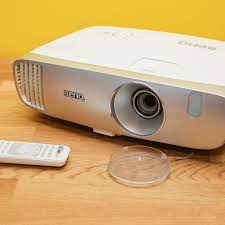Window Air Conditioners vs Portable Air Conditioners: A Comparison

When the heat starts to rise, many of us try to find ways to stay cool. Two popular options for cooling small spaces are window air conditioners and portable air conditioners. Both have their strengths and weaknesses, but which one should you choose? In this article, we compare window air conditioners and portable air conditioners to help you make an informed decision.
Size and Portability
Window air conditioners tend to be smaller and lighter than portable units. They are designed to fit in a window opening and rest on the window frame, so there’s no need for additional floor space. This makes them suitable for tighter spaces.
Portable air conditioners are freestanding units that can be rolled around from room to room, which is useful for those who want flexibility in cooling different areas of the home. However, they do take up more floor space, so you may need to plan accordingly.
Installation
Window air conditioners often require only a few basic tools for their installation: a screwdriver, a level, and some weather stripping or insulation in some cases. In most instances, just follow the manufacturer’s instructions, and they can be up and running within an hour.
Portable air conditioner installation is generally easier than installing a window unit, as they simply need to be placed near a window where an exhaust hose can be attached. The hose must vent outside through the provided window kit for proper operation.
Energy Consumption
Energy efficiency is an important factor when choosing between window and portable air conditioning units. Generally speaking, window air conditioner units are more energy-efficient than portable ones due in part to their better sealing capabilities.
One way to determine energy efficiency is by looking at the Energy Efficiency Ratio (EER) or Seasonal Energy Efficiency Ratio (SEER) ratings on each device. The higher the rating, the more efficient the unit.
Cooling Capacity
When comparing cooling capacities, both window and portable air conditioners can vary greatly depending on the size of the unit. The capacity is measured in British Thermal Units (BTU), which will indicate the amount of heat the unit can remove from a room per hour.
Choose a unit with the appropriate BTU capacity for your room size to cool it effectively. Too small and it will struggle to cool the space, while an oversized unit will consume more energy than necessary.
Noise Level
Both window and portable air conditioners produce noise, though some are quieter than others. Window air conditioner units are generally quieter than portable units due to their positioning within a window and fewer components such as hoses and exhaust. However, modern technology has improved many portable units, making them much quieter than their older counterparts.
Conclusion
When deciding between a window air conditioner and a portable air conditioner, take into consideration factors such as size, portability, installation, energy consumption, cooling capacity, and noise level. By evaluating these aspects based on your preferences and needs, you will be able to choose the best option to keep your space cool during those hot summer days.




